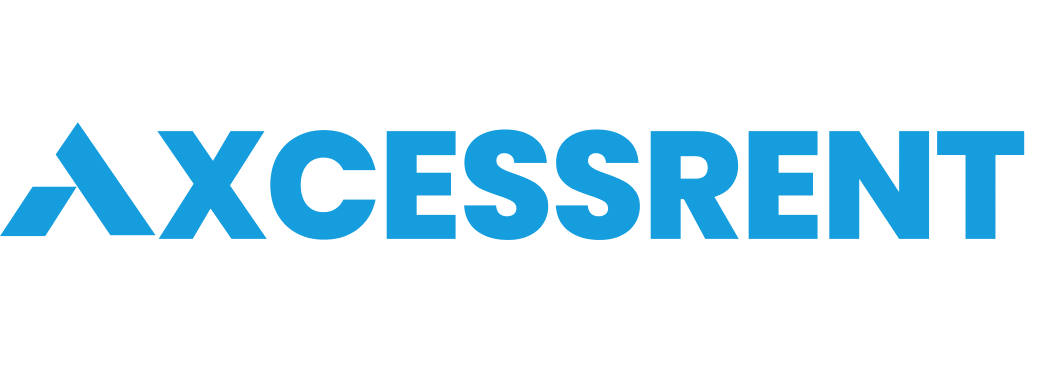Introduction to Net Worth: A Cornerstone of Financial Health
1. A Deeper Dive into Net Worth
Understanding Net Worth
Definition and Importance
Net worth, a fundamental concept in personal finance, offers a comprehensive snapshot of an individual’s financial health. It represents the difference between a person’s total assets and total liabilities. In simpler terms, it’s what you own minus what you owe.
Why Net Worth Matters:
- Financial Goal Setting: Knowing your net worth allows you to set realistic financial goals, whether it’s saving for a down payment on a house, retirement, or a child’s education.
- Risk Assessment: A strong net worth can act as a financial safety net, protecting you from unexpected expenses or economic downturns.
- Investment Strategy: A higher net worth can provide the financial flexibility to invest in a diversified portfolio, potentially leading to higher returns.
- Peace of Mind: A positive net worth can reduce financial stress and increase overall well-being.
Net Worth vs. Income: A Closer Look
While income is a measure of your earning capacity, net worth reflects your accumulated wealth. Here’s a breakdown:
- Income:
- Represents the money you earn from various sources, such as wages, salaries, and investments.
- It’s a flow of funds over time.
- Net Worth:
- Measures your overall financial position at a specific point in time.
- It’s a snapshot of your assets and liabilities.
A high income can contribute to a higher net worth, but it’s not the sole determinant. Factors like saving, investing, and debt management play significant roles.
How Net Worth Reflects Financial Health Over Time
Tracking your net worth over time provides valuable insights into your financial progress. Here’s how it works:
- Positive Net Worth:
- Indicates a strong financial position.
- Suggests that you own more than you owe.
- Provides a financial cushion against unexpected expenses.
- Negative Net Worth:
- Indicates that you owe more than you own.
- May signal financial difficulties.
- Requires careful financial planning to improve your situation.
By consistently increasing your net worth, you’re building long-term financial security. To achieve this, focus on increasing your assets, reducing your liabilities, or both.
2. Components of Net Worth
Net worth is a financial snapshot that captures an individual’s financial health. It’s calculated by subtracting total liabilities from total assets. To better understand net worth, it’s essential to delve into its components: assets and liabilities.
Assets
Assets are anything of value that an individual owns. They can be tangible or intangible. Here are some common types of assets:
- Cash and Cash Equivalents: This includes money in bank accounts, savings accounts, and short-term investments like money market funds.
- Investments: These can include stocks, bonds, mutual funds, exchange-traded funds (ETFs), and retirement accounts like 401(k)s and IRAs.
- Real Estate: This encompasses property owned, such as homes, rental properties, and land.
- Personal Property: This includes items like cars, jewelry, and collectibles.
Liabilities
Liabilities are financial obligations or debts that an individual owes. They represent what a person owes to others. Common types of liabilities include:
- Mortgages: These are loans secured by real estate, such as home mortgages.
- Loans: This category includes personal loans, student loans, and auto loans.
- Credit Card Debt: This refers to unpaid balances on credit cards.
Types of Net Worth
Based on the relationship between assets and liabilities, net worth can be categorized into three types:
- Positive Net Worth:
- Definition: Occurs when total assets exceed total liabilities.
- Implications: Indicates financial stability and a strong financial position.
- Benefits: Provides a financial cushion, enables investments, and reduces financial stress.
- Negative Net Worth:
- Definition: Occurs when total liabilities exceed total assets.
- Implications: Suggests financial difficulties and potential debt problems.
- Risks: Can lead to financial instability and hinder long-term financial goals.
- Zero Net Worth:
- Definition: Occurs when total assets equal total liabilities.
- Implications: A neutral financial position, neither positive nor negative.
- Considerations: While not necessarily a bad situation, it may limit financial flexibility and future opportunities.
3. Calculating Net Worth: A Deeper Dive
The Simple Formula: Assets Minus Liabilities
As a quick recap, the fundamental formula for calculating net worth remains:
Net Worth = Total Assets – Total Liabilities
To break this down further:
- Total Assets: This encompasses everything you own, including:
- Liquid Assets: Cash, checking accounts, savings accounts, and money market funds.
- Investments: Stocks, bonds, mutual funds, ETFs, retirement accounts (401(k), IRA), and other investment vehicles.
- Real Estate: Property you own, such as your primary residence, rental properties, or land.
- Personal Property: Valuables like cars, jewelry, and collectibles.
- Total Liabilities: This includes all your debts, such as:
- Mortgages: Home loans.
- Auto Loans: Car loans.
- Student Loans: Educational loans.
- Credit Card Debt: Unpaid balances on credit cards.
- Personal Loans: Loans from banks or credit unions.
Tools and Resources for Tracking and Calculating Net Worth
Beyond the basic formula, several tools and resources can simplify the process of tracking and calculating net worth:
- Spreadsheets:
- Customizable and free.
- Allow for detailed tracking of assets and liabilities.
- Require manual input and updates.
- Personal Finance Software:
- Automated calculations and financial insights.
- Categorize income and expenses, track net worth, and set financial goals.
- Examples: Quicken, Mint, YNAB.
- Online Banking and Investment Platforms:
- Often provide net worth summaries.
- Integrate with other financial accounts for a comprehensive view.
- May have limitations in terms of customization and detailed analysis.
- Financial Advisors:
- Professional guidance and personalized advice.
- Can help with complex financial situations and long-term planning.
- Incur fees for their services.
The Importance of Regular Calculation and Updates
Regularly calculating and updating your net worth is crucial for several reasons:
- Financial Awareness:
- Provides a clear picture of your financial health.
- Helps you understand your spending habits and saving patterns.
- Goal Setting:
- Allows you to set realistic financial goals, such as buying a house, retiring early, or starting a business.
- Helps you track progress toward your goals.
- Decision Making:
- Informs important financial decisions, like investing, buying a car, or taking on debt.
- Helps you avoid impulsive spending and make informed choices.
- Stress Reduction:
- Knowing your net worth can alleviate financial stress and anxiety.
- Provides a sense of control over your finances.
4. A Deeper Dive into Personal Assets and Liabilities
Asset Categories: Liquid vs. Illiquid Assets
As a recap, assets can be categorized into:
Liquid Assets
- Cash and Cash Equivalents:
- Currency, checking accounts, savings accounts, and money market funds.
- Easily accessible and highly liquid.
- Short-Term Investments:
- Certificates of Deposit (CDs), Treasury bills, and other short-term debt securities.
- Offer higher interest rates than traditional savings accounts but may have restrictions on early withdrawal.
Illiquid Assets
- Real Estate:
- Primary residence, rental properties, and land.
- Can appreciate over time and provide rental income.
- Liquidity can vary depending on market conditions and the specific property.
- Investments:
- Stocks, bonds, mutual funds, ETFs, and retirement accounts.
- Potential for high returns but also involves risk.
- Liquidity depends on the specific investment and market conditions.
- Personal Property:
- Vehicles, jewelry, art, collectibles, and other personal belongings.
- Often less liquid and can be challenging to value accurately.
Debt Management and Its Impact on Net Worth
Effective debt management is crucial for building wealth and improving net worth. Here are some strategies:
- Create a Budget:
- Track income and expenses to identify areas for savings.
- Allocate funds for debt repayment.
- Prioritize High-Interest Debt:
- Focus on paying off credit card debt and other high-interest loans first.
- Consolidate Debt:
- Combine multiple debts into a single loan with a lower interest rate.
- Can simplify payments and reduce interest costs.
- Automate Payments:
- Set up automatic payments to ensure timely debt repayments.
- Consider Debt Counseling:
- Seek professional advice from a credit counseling agency to develop a personalized debt repayment plan.
- Avoid Additional Debt:
- Be cautious about taking on new debt, especially high-interest credit card debt.
Evaluating Personal vs. Investment Assets in Net Worth Calculation
- Personal Assets:
- Typically used for personal consumption or enjoyment.
- May appreciate or depreciate over time.
- Less likely to generate significant income or capital gains.
- Investment Assets:
- Acquired with the intention of generating income or capital appreciation.
- Can provide a steady stream of income through dividends or interest payments.
- Have the potential for significant long-term growth.
Net Worth Goals by Life Stage: A Deeper Dive
Building Net Worth in Early Adulthood (20s-30s)
The 20s and 30s are a crucial period for building a strong financial foundation. Here are some specific net worth goals:
- Establish an Emergency Fund: Aim to save 3-6 months’ worth of living expenses. This fund can provide a financial cushion for unexpected expenses, such as job loss, medical emergencies, or car repairs.
- Reduce Student Loan Debt: Prioritize paying off high-interest student loans. Consider income-driven repayment plans or loan consolidation to manage debt effectively.
- Start Investing Early: Begin investing in retirement accounts like 401(k)s and IRAs. Take advantage of employer matching contributions to maximize returns.
- Build a Good Credit Score: Pay bills on time, avoid excessive debt, and use credit responsibly. A good credit score can help you qualify for better interest rates on loans and credit cards.
- Save for Major Purchases: Set aside funds for significant purchases like a car, a down payment on a home, or a wedding. Consider using a high-yield savings account to earn interest on your savings.
Midlife Net Worth Growth (40s-50s)
As you enter midlife, your financial goals may shift. Here are some net worth goals for this stage:
- Maximize Retirement Savings: Increase contributions to retirement accounts to accelerate wealth growth. Consider maxing out contributions to 401(k)s and IRAs.
- Pay Off High-Interest Debt: Prioritize paying off high-interest debt, such as credit card debt, to reduce interest costs and free up more money for saving and investing.
- Diversify Investments: Spread investments across various asset classes, such as stocks, bonds, and real estate, to reduce risk. Consult with a financial advisor to create a diversified investment portfolio.
- Consider College Savings: If you have children, start saving for their college education through 529 plans or other savings vehicles.
- Plan for Long-Term Care: Explore long-term care insurance options to protect your assets and income in case of future health issues.
Retirement and Legacy Planning in Later Years (60+)
In your later years, the focus shifts to preserving wealth and planning for legacy. Here are some net worth goals for this stage:
- Maximize Retirement Income: Ensure a steady income stream through Social Security, pensions, and retirement savings. Consider part-time work or consulting to supplement income.
- Minimize Tax Burden: Utilize tax-efficient strategies, such as tax-loss harvesting and Roth IRA conversions, to reduce your tax liability.
- Plan for Estate Planning: Create a will, establish trusts, and appoint a power of attorney to transfer assets to heirs and minimize estate taxes.
- Consider Charitable Giving: Donate to charitable organizations to make a positive impact and potentially receive tax benefits.
- Age-Proof Your Finances: Review your financial plan regularly and adjust it as needed to account for changing circumstances, such as healthcare costs and long-term care needs.
6. Strategies to Grow Net Worth: A Deeper Dive
Increasing Assets
Investing:
- Stock Market:
- Individual Stocks: Invest in specific companies you believe will outperform the market.
- Mutual Funds: Pool your money with other investors to invest in a diversified portfolio of stocks and bonds.
- Exchange-Traded Funds (ETFs): Similar to mutual funds but trade on stock exchanges.
- Bonds:
- Government Bonds: Issued by governments and considered relatively low-risk.
- Corporate Bonds: Issued by corporations and offer higher potential returns but also higher risk.
- Real Estate:
- Rental Properties: Purchase properties to generate rental income and appreciate in value.
- Real Estate Investment Trusts (REITs): Invest in companies that own and operate real estate.
Saving:
- High-Yield Savings Accounts: Earn higher interest rates than traditional savings accounts.
- Certificates of Deposit (CDs): Offer fixed interest rates for a specific term.
- Emergency Fund: Aim to save 3-6 months’ worth of living expenses to cover unexpected costs.
Real Estate:
- Homeownership: Building equity in your home can be a significant wealth-building strategy.
- Rental Properties: Generating rental income and capital appreciation.
Reducing Liabilities
- Debt Repayment:
- Prioritize High-Interest Debt: Focus on paying off credit card debt and other high-interest loans first.
- Create a Debt Repayment Plan: Develop a budget to allocate funds for debt repayment.
- Debt Consolidation: Combine multiple debts into a single loan with a lower interest rate.
- Avoid Bad Debt:
- Limit Credit Card Use: Use credit cards responsibly and pay off balances in full each month.
- Avoid High-Interest Loans: Be cautious about taking on high-interest loans, such as payday loans.
- Think Before You Buy: Consider the long-term costs of purchases before making them.
Diversifying Assets to Stabilize and Increase Net Worth
- Asset Class Diversification: Invest in a mix of stocks, bonds, and real estate to spread risk.
- Geographic Diversification: Invest in assets from different geographic regions to reduce exposure to specific economic events.
- Industry Diversification: Invest in companies from various industries to mitigate the impact of industry-specific risks.
7. Net Worth in Financial Planning: A Deeper Dive
Net Worth as a Foundation for Financial Goals
Net worth serves as a crucial foundation for financial planning. It provides a clear picture of your financial health and helps you set realistic goals.
Key Roles of Net Worth in Financial Planning:
- Goal Setting:
- Short-Term Goals: Buying a car, taking a vacation, or saving for a down payment.
- Long-Term Goals: Retirement, buying a home, or starting a business.
- Risk Assessment: A higher net worth can provide a financial cushion to weather economic downturns, job loss, or unexpected medical expenses.
- Investment Strategy: A strong net worth allows you to invest more aggressively in higher-risk, higher-reward investments.
- Debt Management: A higher net worth can help you pay off debt faster and reduce interest expenses.
- Retirement Planning: A substantial net worth can significantly impact your retirement lifestyle and financial security.
How Net Worth Affects Retirement and Long-Term Planning
Your net worth is a critical factor in determining your retirement readiness and long-term financial security.
Key Impacts of Net Worth on Retirement and Long-Term Planning:
- Retirement Income: A higher net worth can provide additional income sources in retirement, such as dividends, interest, and rental income.
- Retirement Lifestyle: A strong net worth allows you to maintain your desired lifestyle in retirement, including travel, hobbies, and charitable giving.
- Healthcare Costs: As you age, healthcare costs can increase significantly. A higher net worth can help cover these expenses.
- Long-Term Care: If you need long-term care, a substantial net worth can help pay for these costs, either through self-funding or long-term care insurance.
- Legacy Planning: A higher net worth allows you to leave a legacy for future generations through charitable giving or estate planning.
Aligning Net Worth Goals with Lifestyle and Aspirations
To align your net worth goals with your lifestyle and aspirations, consider the following:
- Identify Your Goals: Clearly define your short-term and long-term financial goals.
- Assess Your Current Financial Situation: Evaluate your current net worth, income, and expenses.
- Create a Financial Plan: Develop a comprehensive financial plan that outlines your goals, strategies, and timeline.
- Regularly Review and Adjust: Regularly review and adjust your financial plan to account for changes in your circumstances and goals.
- Prioritize Your Goals: Focus on your most important goals and allocate resources accordingly.
- Be Realistic: Set achievable goals and avoid unrealistic expectations.
- Seek Professional Advice: Consult with a financial advisor to get personalized advice and guidance.
8. Net Worth for Families vs. Individuals: A Deeper Dive
Tracking Joint Assets and Liabilities in Families
In a family setting, tracking joint finances is crucial for maintaining financial harmony and making informed decisions. Here are some strategies:
- Create a Shared Financial Account: A joint checking or savings account can simplify shared expenses like mortgage payments, utility bills, and groceries.
- Maintain Individual Accounts: Separate accounts can help manage personal expenses, savings goals, and hobbies.
- Regular Financial Meetings: Schedule regular meetings to discuss financial goals, review budgets, and track progress.
- Use Financial Software: Tools like Mint or Quicken can automate tracking, budgeting, and financial planning.
- Transparent Communication: Open and honest communication about finances is essential to avoid misunderstandings and conflicts.
Net Worth Considerations for Dual-Income Households
Dual-income households have unique opportunities and challenges when it comes to building wealth. Here are some key considerations:
- Combined Income: A higher combined income can accelerate wealth accumulation and provide greater financial security.
- Diversified Income Sources: Relying on multiple income streams can reduce financial risk and provide a safety net in case of job loss or economic downturns.
- Shared Financial Goals: Aligning financial goals, such as saving for a down payment, retirement, or children’s education, can strengthen the relationship and motivate both partners.
- Retirement Planning: Coordinating retirement plans, such as 401(k)s and IRAs, can maximize retirement savings and income.
- Estate Planning: Creating a comprehensive estate plan can ensure that assets are distributed according to your wishes and minimize estate taxes.
Estate and Inheritance Planning for Family Net Worth
Effective estate planning is essential to protect your family’s financial future and minimize tax burdens. Here are key considerations:
- Create a Will: A will outlines how your assets will be distributed after your death.
- Establish a Trust: A trust can help manage assets, protect beneficiaries, and minimize estate taxes.
- Designate Beneficiaries: Clearly designate beneficiaries for retirement accounts, life insurance policies, and other assets.
- Consider Gift Tax Implications: Be aware of gift tax rules when transferring assets to heirs.
- Review Your Estate Plan Regularly: Update your estate plan as your financial situation, family circumstances, and tax laws change.
- Consult with an Estate Planning Attorney: An attorney can help you create a comprehensive estate plan that meets your specific needs.
9. Net Worth and Wealth Inequality: A Deeper Dive
Understanding Net Worth Disparities Across Demographics
Net worth disparities are stark across various demographic groups. Key factors contributing to these disparities include:
- Historical Disadvantage:
- Slavery and Segregation: These historical injustices have left lasting impacts, limiting opportunities for marginalized groups.
- Redlining: Discriminatory housing practices that denied access to homeownership and wealth-building opportunities.
- Income Inequality:
- Wage Gap: Persistent wage gaps between genders and races.
- Job Market Disparities: Unequal access to quality jobs and career advancement opportunities.
- Education Inequality:
- School Funding Disparities: Unequal funding for schools in low-income and minority communities.
- Access to Higher Education: Limited access to higher education, particularly for marginalized groups.
- Access to Capital:
- Discrimination in Lending: Difficulty in obtaining loans and mortgages, especially for minority borrowers.
- Wealth Transfer: Unequal inheritance and wealth transfer opportunities.
Socioeconomic Factors Influencing Net Worth Accumulation
Several socioeconomic factors influence net worth accumulation:
- Income:
- Wage and Salary: Higher income levels provide more disposable income for saving and investing.
- Self-Employment: Entrepreneurial ventures can generate significant wealth.
- Education:
- Higher Education: Advanced degrees often lead to higher-paying jobs and career opportunities.
- Job Training: Skill development programs can enhance employability and earning potential.
- Occupation:
- Professional Occupations: Careers in fields like medicine, law, and finance often have higher earning potential.
- Specialized Skills: Unique skills and expertise can command premium wages.
- Homeownership:
- Equity Build-up: Owning a home allows individuals to build equity over time.
- Tax Benefits: Homeownership offers tax advantages, such as deductions for mortgage interest and property taxes.
- Investment Opportunities:
- Stock Market: Investing in stocks and bonds can generate significant returns over the long term.
- Real Estate: Owning rental properties can provide rental income and capital appreciation.
Policies and Programs Aimed at Closing the Wealth Gap
Various policies and programs aim to address wealth inequality and promote economic mobility:
- Progressive Taxation:
- Income Tax: Taxing higher incomes at higher rates can help redistribute wealth.
- Wealth Tax: Taxing wealth, such as property and financial assets, can reduce wealth concentration.
- Social Safety Nets:
- Social Security: Provides retirement benefits and disability insurance.
- Medicare: Provides health insurance for the elderly and disabled.
- Medicaid: Provides health coverage for low-income individuals and families.
- Affordable Housing Programs:
- Subsidized Housing: Provides affordable housing options for low-income individuals and families.
- First-Time Homebuyer Programs: Offers down payment assistance and other incentives to help first-time homebuyers.
- Education and Job Training Programs:
- Public Education: Investing in public schools can improve educational outcomes.
- Higher Education Grants and Loans: Financial aid programs can help students afford college.
- Job Training Programs: Skill development programs can help individuals acquire in-demand skills.
- Financial Literacy Programs:
- Education on budgeting, saving, investing, and debt management can empower individuals to make informed financial decisions.
10. Monitoring and Adjusting Net Worth Over Time: A Deeper Dive
Tools for Tracking Net Worth: Apps and Financial Advisors
To effectively monitor your net worth, you can utilize various tools and professional services:
Personal Finance Apps:
- Mint: A comprehensive financial app that tracks spending, budgeting, and net worth. It connects to your bank accounts, credit cards, and investment accounts to provide a real-time view of your finances.
- YNAB (You Need a Budget): A budgeting app that emphasizes mindful spending and saving. It helps you track income, expenses, and savings goals, allowing you to visualize your net worth over time.
- Quicken: A desktop software that offers advanced financial tracking and planning features, including net worth tracking, budgeting, and investment analysis.
Online Banking and Investment Platforms:
- Many online banking and investment platforms, such as Vanguard, Fidelity, and Charles Schwab, provide tools to track your net worth, including assets and liabilities.
Financial Advisors:
- A qualified financial advisor can provide personalized guidance on tracking your net worth, developing a financial plan, and making informed investment decisions. They can help you identify areas for improvement and adjust your financial strategy to achieve your long-term goals.
Tips for Adjusting Net Worth Goals During Economic Shifts
Economic shifts, such as recessions, inflation, and market volatility, can impact your net worth. Here are some tips for adjusting your goals:
- Review Your Financial Plan: Regularly review your financial plan to assess your current situation and adjust your goals as needed.
- Diversify Your Investments: Spread your investments across various asset classes to reduce risk.
- Emergency Fund: Maintain a healthy emergency fund to cover unexpected expenses and weather economic downturns.
- Consider Professional Advice: Consult with a financial advisor to get expert guidance on navigating economic challenges.
- Be Patient and Stay the Course: Avoid making impulsive decisions based on short-term market fluctuations. Focus on your long-term financial goals and maintain a disciplined investment strategy.
Celebrating Milestones and Revisiting Financial Goals Regularly
Celebrating milestones can boost your motivation and keep you on track. Here are some tips:
- Set SMART Goals: Set Specific, Measurable, Achievable, Relevant, and Time-bound financial goals.
- Track Your Progress: Use financial tools to monitor your progress and celebrate milestones, no matter how small.
- Reward Yourself: Reward yourself for achieving your goals, but avoid overspending.
- Revisit Your Financial Goals: Regularly review and adjust your financial goals to align with your changing circumstances and aspirations.
- Stay Positive and Persistent: Maintain a positive mindset and stay committed to your financial goals.







